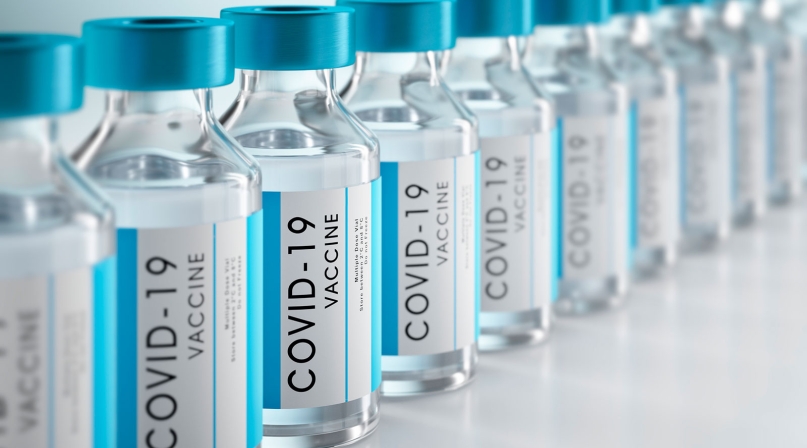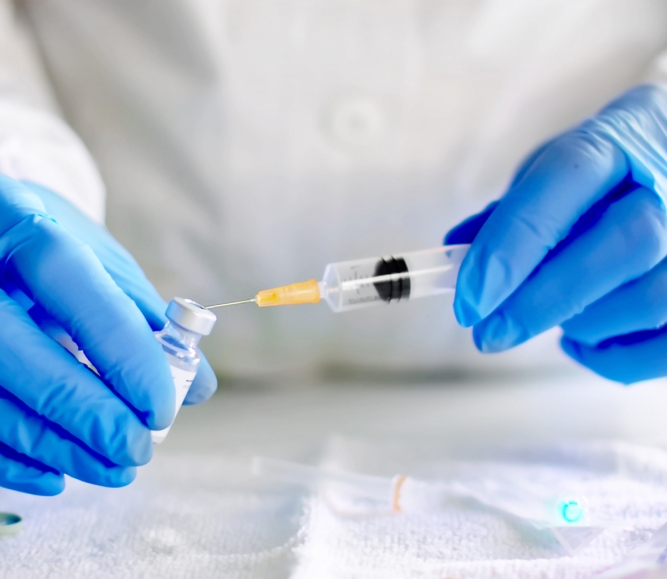FDA issues an emergency use authorization for a third COVID-19 vaccine, manufacturers ramp up production
Author

Blaire Bryant
Upcoming Events
Related News

Key Takeaways
The Food and Drug Administration on February 27 issued an emergency use authorization for Johnson & Johnson’s Janssen vaccine, the third vaccine for COVID-19 approved for adults and the first approved vaccine that requires only one dose. The Pfizer and Moderna vaccines, which the FDA recommends recipients receive as a series of two doses about one month apart, received EUAs on December 11th and December 18th, respectively.
A clinical trial for the Janssen vaccine that was conducted in North America, South America and Africa found it was 66 percent effective and 72 percent effective in the United States. Additionally, the Janssen vaccine had about 85 percent efficacy against severe or critical COVID-19 cases.
Of benefit to county sites who are administering the vaccine, the Janssen vaccine can also be stored at warmer temperatures than the Pfizer and Moderna vaccines; which eases the logistical burden of storing the vaccine, and the need for specific storage supplies. The Janssen vaccine should be stored between 36°F to 46°F, whereas the Pfizer and Moderna vaccines should be stored between -112ºF to -76ºF and -13º to 5ºF, respectively. The Pfizer and Moderna vaccines could be stored at warmer temperatures for multiple weeks without expiring.
The news of a third effective vaccine comes as the federal government and its partners prepare to ramp up vaccine production and distribution. A subcommittee within the House Committee on Energy and Commerce held a hearing on February 22 where leadership from the 6 leading vaccine manufacturers testified about the rate of their companies’ vaccine production processes. The makers of the three approved vaccines made commitments to increase production:
- Pfizer is on track to have made 120 million doses available for shipment by the end of March, an addition 80 million doses by the end of May, and 100 million by July. It will increase weekly allotments from about 5 million at the end of February to about 13 million by the middle of March.
- Moderna is on track to have made 100 million doses available for shipment by the end of March, and hopes to have 200 total doses available by the end of May and 300 million total by July.
- Johnson & Johnson, which has begun shipping 4 million doses, pledged to have 20 million doses available by the end of March, 17 million doses below what it had agreed to produce by March 2021 in its contract with HHS. It has pledged to produced 100 million doses in the first half of 2021. On March 2, the Biden Administration announced a partnership between Johnson and Johnson and Merck to manufacture the Janssen vaccine.
During the hearing officials also discussed the possibility of producing booster shots to combat variants that the current vaccines do not protect against. For example, Novovax Executive Vice President John Trizzino described how its vaccine, which is in stage three of clinical trials, has shown promise in protecting against the South African variant. On Feb. 24, Moderna announced it had shipped a vaccine that targets the South African variant to the National Institute of Health for a clinical study.
While the approval of a third vaccine and the projected increase in manufacturing will equip counties with the supply needed to meet the growing vaccine demand in their communities, direct and flexible federal assistance and resources to counties - particularly direct dosage allocations - will give local governments more authority to provide resources and vaccine doses to the places and people that need them most. NACo encourages Senate lawmakers to swiftly pass the American Rescue Act, which will provide needed assistance to local entities working to vaccinate Americans across the country.
Additional Resources
Resource
COVID-19 Vaccine Toolkit for Counties

Related News

Drug tracking software helps counties identify trends, save lives
Florida counties are using an artificial intelligence tool called Drug TRAC to track and report drug trends, with the aim of providing quicker outreach and saving lives.

White House Executive Order establishes national substance use disorder response
On January 29, the White House issued an Executive Order (EO) establishing the Great American Recovery Initiative, a new federal effort aimed at coordinating a national response to substance use disorder (SUD).

USDA and HHS release new dietary guidelines
On January 7, U.S. Department of Agriculture Secretary Brooke Rollins and U.S. Department of Health and Human Services Secretary Robert F. Kennedy, Jr. unveiled the new Dietary Guidelines for Americans, 2025–2030.